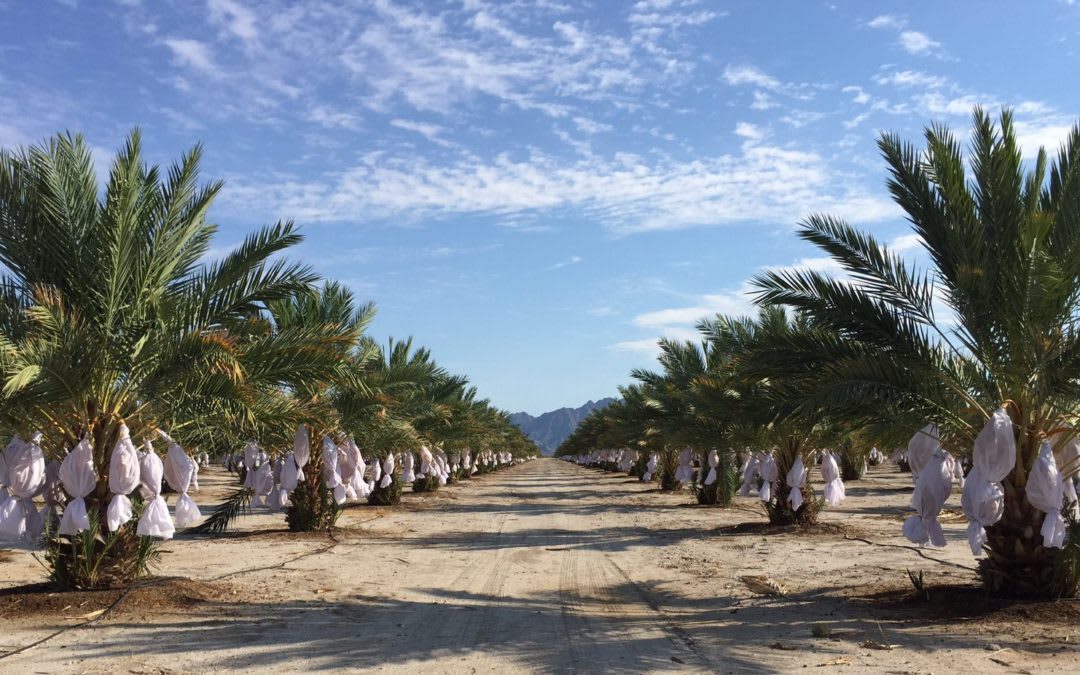As organic farmers, we are concerned with many issues. Biodiversity, preserving and protecting the environment, and of course, food safety are things that we think about on a daily basis.
Everything we do on the farm, every decision we make, every initiative we undertake has its roots in food safety and permaculture. This is in part due to regulations we are required to uphold, but it is also part of our philosophy here at Naked Dates, as being able to deliver healthy, delicious, organic products to you is at the core of our mission.
The Food Safety Modernization Act (FSMA)
In 2011, then-president Obama signed the Food Safety Modernization Act into law. Primarily designed to prevent food-borne illness, it presents some issues for small farmers who can’t afford to establish the new certifications that are required of them.
By the year 2018, when the act is due for full implementation, each and every farmer must have each of their crops separately certified, and only farms that have a gross intake of $500K or less in a year will be exempt. This may seem like it doesn’t eclipse out the small family farm, but there are certain initiatives that may disqualify them from the exemption, such as participation in food hub programs, farm box programs, farm-produced products like pickles, jams and preserves, and diversified farmers who sell a wide range of products.
 How the FSMA affects Naked Dates
How the FSMA affects Naked Dates
As organic farmers, we are lucky in that most of these new food safety regulations are already in place. Our crops are fully certified, and we are committed to the rigorous reporting and inspection processes that are mandated in order to maintain our organic status.
The laws that govern us control how our crops are grown, irrigated, fertilized, harvested, packed, and shipped. They affect how and when we fertilize, and what measures we take to ensure that the product shipped to you is safe and free of contaminants.
Because we are committed to organic practices, safety is a mandate for us. But we recognize the plight of the small family farm in complying with the new regulations, and realize that it may affect how the vast majority of us feed our families.
Do the new rules conflict with organic farming?
Though the new rules were not supposed to conflict with the National Organic Program whatsoever, organic farmers who grow greens like spinach or virtually any crop that has contact with the soil will feel the effects of the new rules about applying manure as fertilizer. There are other issues, but this is a big one, as it will affect biodiversity, crop rotation, and other methods that many farmers depend on to stay in business.
The truth is, the laws were written by agri-business conglomerates like Monsanto and Cargill, and though it all falls under the umbrella of food safety, it’s really only benefiting industrial farms, most of which use GMO seed stock, pesticides, and herbicides that most of us really don’t want to be consuming.
It’s easy to see how big bureaucracy can work at cross-purposes towards what is considered the “greater good”. That is not to say that food safety isn’t incredibly important, but some considerations should be made for farmers in rural communities to help them keep their livelihoods – not to mention for health and environmentally conscious consumers like us who want to not only support our local farmers, but to bring delicious, locally grown produce, fruits and vegetables home to eat.
In our humble opinion, there is far more potential for food contamination from one of these massive FSMA compliant mega-farms than there is from us, or from your local farm stand. Machine-harvested, packed, and inspected, one big contaminated lot will do so much more damage and sicken more people than one bad bag of spinach.
Here are just a few of the ways the FSMA may affect your local farmers:
- Gives the federal government access to farm land without a warrant
- All farms of any size who sell anything, no matter how little, will be required to register with the government
- Allows federal agents to dictate growing practices to the farmer
- Allows the FDA to cease all movement of crops in a geographical region
- Threat of fines in excess of $100K and prison time for any violations
So, while it doesn’t seem to directly apply to organic farms, it’s still a concern that one farmer’s violation of the FSMA may take down all of our good efforts.
 Support your local family farmers!
Support your local family farmers!
Our small local and family farms are the backbone of a healthy, green lifestyle. We can stand up to monsters like Monsanto by refusing to buy their products, and instead choosing to live and eat healthfully and organically as Americans have done for centuries.
This wasn’t really meant to be a political rant, but perhaps it can shed some light on a current issue, and open your eyes to what our government thinks is good for us. Until next time (when I will attempt to err on the lighter side of things), live simply, live organically, shop Naked! (dates, that is …)

